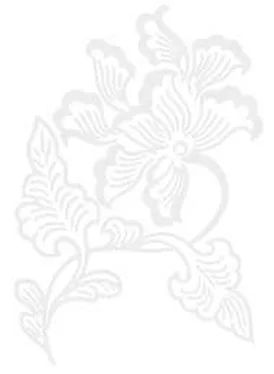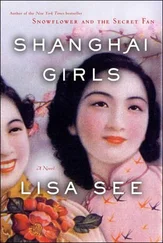Lisa See - Peony in Love
Здесь есть возможность читать онлайн «Lisa See - Peony in Love» весь текст электронной книги совершенно бесплатно (целиком полную версию без сокращений). В некоторых случаях можно слушать аудио, скачать через торрент в формате fb2 и присутствует краткое содержание. Жанр: Старинная литература, на английском языке. Описание произведения, (предисловие) а так же отзывы посетителей доступны на портале библиотеки ЛибКат.
- Название:Peony in Love
- Автор:
- Жанр:
- Год:неизвестен
- ISBN:нет данных
- Рейтинг книги:4 / 5. Голосов: 1
-
Избранное:Добавить в избранное
- Отзывы:
-
Ваша оценка:
- 80
- 1
- 2
- 3
- 4
- 5
Peony in Love: краткое содержание, описание и аннотация
Предлагаем к чтению аннотацию, описание, краткое содержание или предисловие (зависит от того, что написал сам автор книги «Peony in Love»). Если вы не нашли необходимую информацию о книге — напишите в комментариях, мы постараемся отыскать её.
Peony in Love — читать онлайн бесплатно полную книгу (весь текст) целиком
Ниже представлен текст книги, разбитый по страницам. Система сохранения места последней прочитанной страницы, позволяет с удобством читать онлайн бесплатно книгу «Peony in Love», без необходимости каждый раз заново искать на чём Вы остановились. Поставьте закладку, и сможете в любой момент перейти на страницу, на которой закончили чтение.
Интервал:
Закладка:
When my coffin reached the wind-fire gate, I saw Ren. Even as my Second Uncle broke a cup with holes in it just over where my head rested—from now on I would only be allowed to drink the water I’d wasted in life—I rejoiced. Firecrackers exorcised from around the compound inauspicious influences associated with me. I was placed in a palanquin, not a red one for marriage but a green one to represent death. The procession started. My uncles tossed spirit money to secure my right of way to the afterworld. Ren, his head bent, walked between my father and Commissioner Tan. They were followed by palanquins holding my mother, aunts, and girl cousins.
At the cemetery, my coffin was lowered into the ground. The wind soughed through the poplars in ghostly song. Mama, Baba, and my aunts, uncles, and cousins each picked up a handful of dirt and threw it on my coffin. As the soil covered the lacquer surface, I felt that third of my soul disappear from me forever.
From the Viewing Terrace, I watched and listened. No ghost marriage ceremony was performed. No banquet was presented at the graveside, ( 1 0 9 )
which would introduce me to my new companions in the afterworld and pave the way for good understanding between me and my new associates.
Mama was so weak from grief that my aunts had to help her back into the palanquin. Baba led the procession, and once again Ren and Commissioner Tan were beside him. For a long while, no one spoke. What comfort could anyone give a father who has lost his only child? What could anyone say to a groom who has lost his bride?
Finally, Commissioner Tan addressed my father: “Your daughter is not the only one to be affected by this terrible opera.”
What kind of solace was this?
“But she loved the opera,” Ren mumbled. The other men stared at him, and he added, “I heard this about your daughter, Master Chen. If I’d been fortunate enough to marry her, I never would have kept it from her.”
It’s hard to describe my feelings at seeing him there when so recently we had been in each other’s arms, composing poetry, letting qing flow between us. His mourning was real, and once again I was filled with regret for the stubbornness and foolishness that had brought me to this place.
“But she died from lovesickness, just as that sorry girl died in the opera!” Commissioner Tan spat out. It seemed he was unaccustomed to anyone disagreeing with him.
“It’s true that life’s tendency to imitate art is not always a comfort,” my father admitted, “but the boy is right. My daughter could not live without words and emotion. And you, Commissioner, don’t you sometimes wish you could visit the women’s chambers and experience the true depths of qing ?”
Before Commissioner Tan could respond, Ren said, “Your daughter is not without words or emotion, Master Chen. For three nights, she visited me in my dreams.”
No! I shouted from my spot on the Viewing Terrace. Didn’t he know what revealing this would mean?
My father and Commissioner Tan looked at him in concern.
“Truly we have met,” Ren said. “A few nights ago, we were together on your Moon-Viewing Pavilion. When she first came to me, her hair was pinned for marriage. The sleeves of her outer jacket were embroidered the color of kingfisher feathers.”
“You describe her perfectly,” my father agreed suspiciously. “But how did you know her if you had not met her before?”
Would Ren give away our secret? Would he ruin me in my father’s eyes?
( 1 1 0 )
“My heart recognized her,” Ren answered. “We composed poems together: Soaring across the sky in never-ending sleeplessness. . . . When I woke, I wrote down eighteen poems.”
“Ren, you have proved once again that you are a man of sentiment,”
my father said. “I could not have asked for a better son-in-law.”
Ren reached into his sleeve and pulled out several folded pieces of paper. “I thought you would like to read these.”
Ren was wonderful, but he’d made a terrible, nearly irreversible, mistake. When we’re alive, we’re told that if a dead one appears to someone in a dream and that person tells others about it—or, worse, if he shows through writing the words of the dead—then the spirit will be driven away. This is why fox spirits, ghosts, and even immortals beg their human lovers not to reveal their existence to the world. But humans cannot keep a secret. Of course, the spirit—whatever form it takes—doesn’t “disappear.” Where would it go? But the ability to visit in dreams becomes nearly impossible. I was devastated.
i n th e s i xth week after my death, I should have crossed the Inevitable River. In the seventh week, I should have entered the realm of the Prince of the Wheel, where I would be brought before judges who would decide my fate. But none of these things happened; I remained on the Viewing Terrace. I began to suspect that something was terribly wrong.
I never saw Baba approach Ren about a ghost marriage. My father was too busy, preparing to move to the palace in Beijing to take up his new post. I should have been distressed about this—how could he allow himself to make obeisance to the Manchu emperor?—and I was. I should have worried for my father’s soul when he decided to give up his morals in exchange for making a fortune—and I did. But I was far more anxious that Baba would try to trap a husband other than Ren to accept me as a ghost bride. It would have been easy for Baba to throw some money on the road outside our gate, wait for some passerby to pick it up, and tell the man that in picking up the “bride price” he had accepted me as a wife. But this didn’t happen either.
Mama said she wouldn’t follow Baba to Beijing, refusing to waver in her steadfastness never to leave the Chen Family Villa. I took comfort in this. For Mama, the joys and laughter of our once happy days in the Spring Pavilion before I retired to my room had disappeared, only to be replaced by tears of blood and woe. She spent hours in the storeroom where my ( 1 1 1 )
belongings were kept, finding my scent clinging to my clothes, touching the brushes I’d handled, letting her eyes rest on the items I’d embroidered for my dowry. I had resisted my mother for so long; now I longed for her all the time.
Forty-nine days after my death, my family crowded into our ancestral hall for the dotting of my ancestor tablet and a final goodbye. Storytellers and a handful of singers gathered in the courtyard. Someone of great distinction—a scholar or member of the literati—is always given the honor of placing the final precious dot on the ancestor tablet. Once this was done, a third of my soul would be transferred to the tablet, where it would watch over my family. The dotting would allow me to be worshipped as an ancestor and give me a place to inhabit on earth for all eternity. My dotted ancestor tablet would also be the object through which my family would send their offerings to sustain me in the afterworld, make requests for my help, and provide comfort to me as a way of averting potential hos-tility. In the future, when my family embarked on a new business venture, named a child, or considered a marriage proposal, they would consult me through my tablet. I was sure Commissioner Tan, who was the highest-ranked person my father knew in Hangzhou, would perform the dotting.
But my father chose the one person who would mean more to me than anyone else: Wu Ren.
He was more distraught than he’d been on the day of my funeral. His hair was tousled as though he’d given up sleep altogether. Pain and regret filled his eyes. Now that I’d been banned from his dreams, he understood his loss all too clearly. That part of me that was to reside in my ancestor tablet came to rest next to him. I wanted him to know I was there at his side, but neither he nor anyone else seemed aware of my presence. I was less substantial than a whiff of incense smoke.
Читать дальшеИнтервал:
Закладка:
Похожие книги на «Peony in Love»
Представляем Вашему вниманию похожие книги на «Peony in Love» списком для выбора. Мы отобрали схожую по названию и смыслу литературу в надежде предоставить читателям больше вариантов отыскать новые, интересные, ещё непрочитанные произведения.
Обсуждение, отзывы о книге «Peony in Love» и просто собственные мнения читателей. Оставьте ваши комментарии, напишите, что Вы думаете о произведении, его смысле или главных героях. Укажите что конкретно понравилось, а что нет, и почему Вы так считаете.












